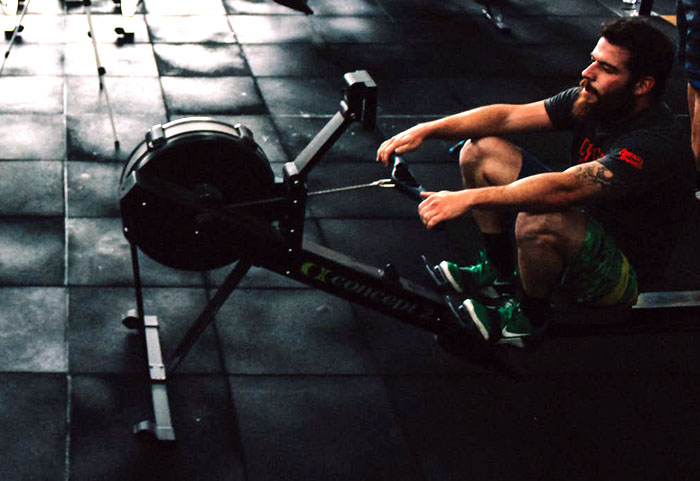The 2 km (2000 meters) Rowing Ergo Test is part of the eTID Talent Identification Testing Program for rowing, and their protocol is listed here. There is also a 5km and 500m ergo test.
test purpose: This test is designed to completely exhaust all energy production pathways under race conditions.
equipment required: Concept IID rowing ergometer (or equivalent). A specific drag factor needs to be set (see comments below).
pre-test: Explain the test procedures to the subject. Perform screening of health risks and obtain informed consent. Prepare forms and record basic information such as age, height, body weight, gender and test conditions. Check and calibrate the equipment as required. Perform a standard warm-up. See more details of pre-test procedures.
procedure: Ensure the correct drag factor is set correctly with the preferred display option selected on screen (see comments below). Ensure 500m splits are set on the PM3/4 prior to the trial. Sit ready to start the 2 km test. The aim of the test is to cover the 2 km in the shortest possible time, and you should be exhausted at the completion of the trial. Experience has shown that better scores are achieved with an even split rather than starting conservatively and then coming home strong, or going out too fast and not being able to complete the distance.
 rowing ergometer event
rowing ergometer eventscoring: Record the time taken to complete the 2000 meters in minutes and seconds and the average stroke rate.
target population: rowing
comments:
- Strong verbal encouragement will help the subject achieve their maximal score.
- Drag factors should be set at 90 for females and 100 for males. Drag factors can be checked on the Concept IID rowing ergometer by following the menu prompts on the PM3/4 interface. The drag factor display will appear in the lower right display window. When the drag factor display is present, participants are to row lightly and adjust the damper setting to select the correct drag factor. Check with local staff to ensure the drag factor is set for the particular ergometer you are using.
- Good pacing is very important. Too fast a start can lead to increased metabolic acidosis that will have a negative effect on aerobic energy production during the dominant endurance portion of the race. This could lead to early fatigue and a deterioration in technique.
The Test in Action
- This test is part of the eTID Talent Identification Testing Program for rowing.
Similar Tests
- 5km Rowing Ergometer Test — aim to cover the 5000m in the shortest possible time.
- 500m ergo test — aim to cover the 500m in the shortest possible time.
- Rowing Beep Test — incremental test performed on a rowing ergometer
Related Pages
- Other aerobic tests
- Rowing fitness testing
- Rowing Ergometers for Fitness Testing
- About the eTID Talent Identification Testing Program.
- ETID Fitness Testing for Rowing
- About the sport of rowing, which includes indoor rowing competitions
- Rowing at the Olympic Games


 Current Events
Current Events